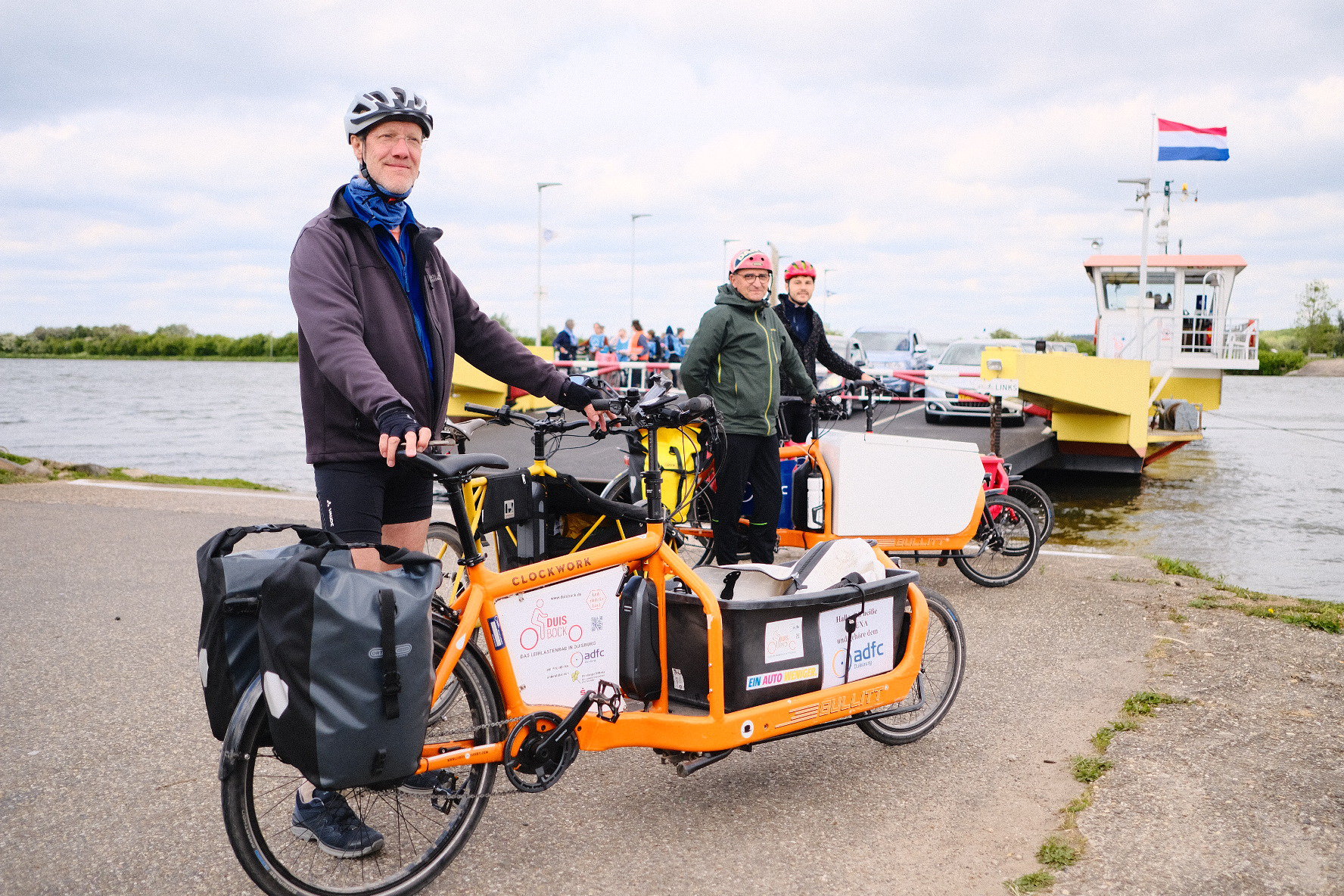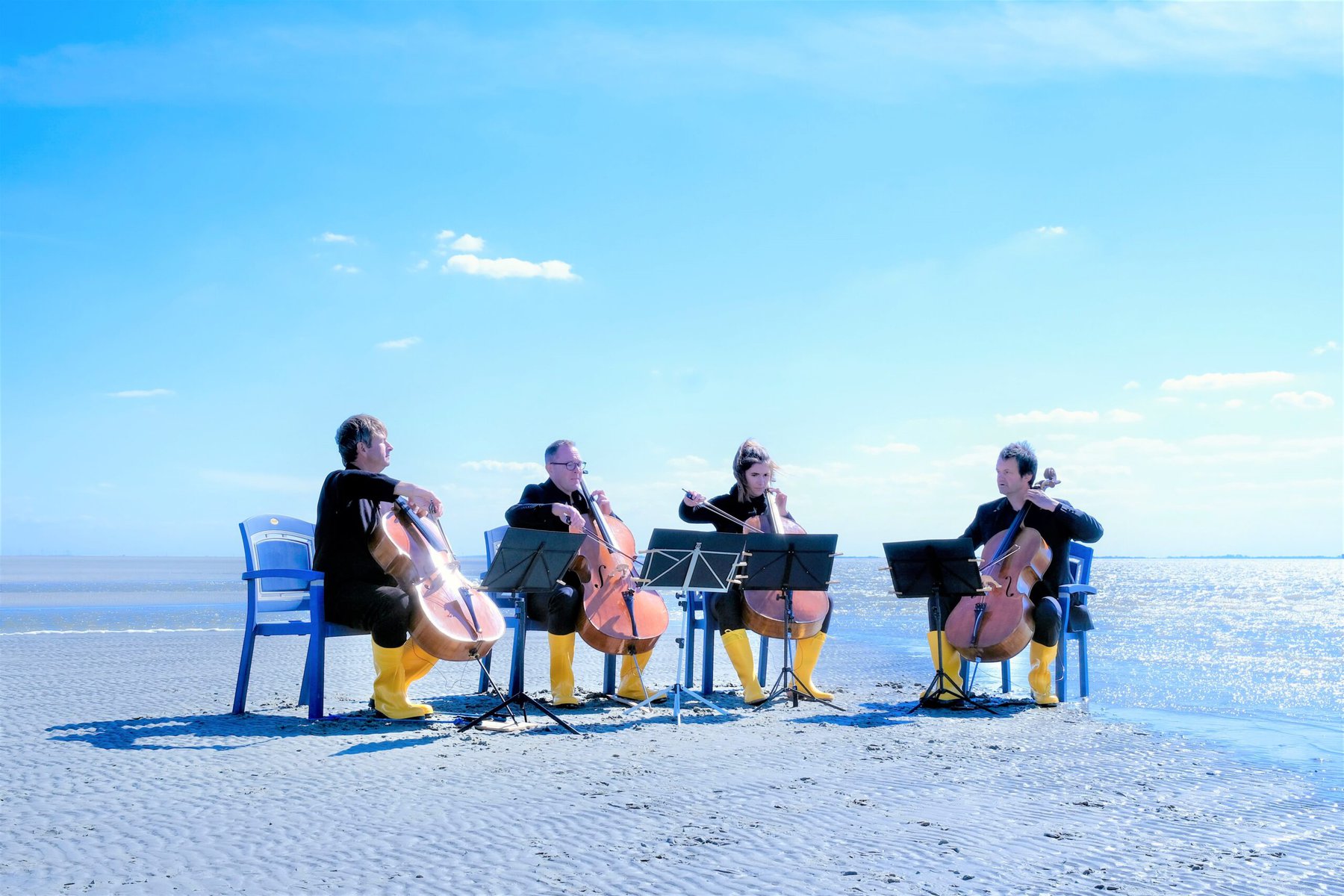Founded in 2020, the Orchestra of Change collective has grown quickly in a country that, with 129 publicly funded concert, opera, radio and chamber orchestras, is home to a full quarter of the world’s professional orchestras. Currently, 40 state orchestras are members, and individual projects range from supporting rainforests in the tropics to recycling stage sets at home; donning yellow rain boots and playing cellos on Germany’s spectacular intertidal mudflats; and bringing “climate-neutral” chocolate bars to Germany via sailing ship and bicycle to sell during intermissions.
“Musicians can use their creativity, and come up with new formats, to help the climate,” said Mannheim-based viola player Detlef Grooss, one of the group’s co-founders. In a country with nearly 10,000 permanently employed classical musicians, he added, “I think it’s good, if we don’t just act like music-playing employees.”
As Grooss explains it, the Orchestra of Change came about as a response to a dilemma: We all know that human behavior is damaging the environment, but we don’t do much about it. “All the facts are clear,” he said. “But we don’t act. We are like the smoker with the amputated leg, saying, ‘Give me another cigarette.’”

Talking to his brother, a climate researcher, Grooss came across the idea that, while people may understand the problem intellectually, we fail to process it emotionally. Maybe, he thought, music could help. “Scientists reach brains,” he said. “But artists touch the heart.”
“As musicians,” he added, “What we can do best is communicate using emotion.”
Berlin-based French horn player Markus Bruggaier, another co-founder, was thinking along the same lines. Some 15 years ago, a Berlin instrument maker alerted him to the fact that, due to the destruction of the rainforests, the tropical hardwoods needed to build things like violin bows were in imminent danger of total extinction. “When we heard about this topic, we understood how extreme the situation is,” said Bruggaier, a member of the Staatsoper’s house orchestra, the Staatskapelle Berlin. “Bow making could die out.”


Bruggaier co-founded an initiative to raise awareness of the problem and teamed up with the Zurich Zoo to support a reforestation project in Madagascar, where the black ebony wood needed for the “frog” of the bow is grown. “We started to do something, to just go for it,” he said.
He and his colleagues from the Staatskapelle raised money for the reforestation project, started looking at ways to reduce their own orchestra’s carbon footprint, and began hosting an annual Climate Concert in an old industrial power plant in central Berlin. But he wanted to do more.
Crushed by negative news?
Sign up for the Reasons to be Cheerful newsletter.
“I had the feeling we didn’t use the environmental theme in classical music enough,” he said. “People said, ‘It’s just love and death.’ But I don’t agree, I think there’s a lot of inspiration from nature there.”
He started reaching out to colleagues across Germany. Joined by a horn player from Duisburg, a horn player from Luebeck, and a cellist from Braunschweig, Bruggaier and Grooss officially launched the Orchestra of Change just as the pandemic hit. “As musicians, we couldn’t play,” said Grooss. “So we had a lot of time for this.”


